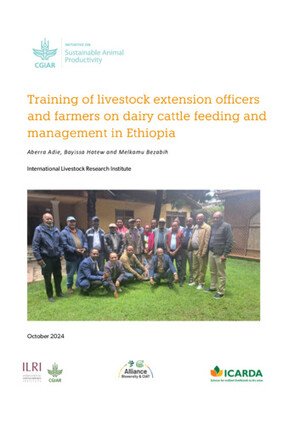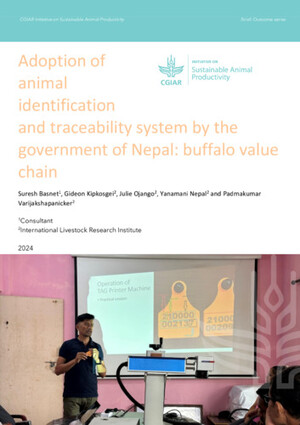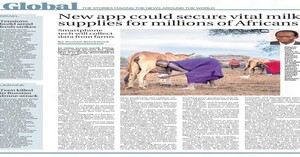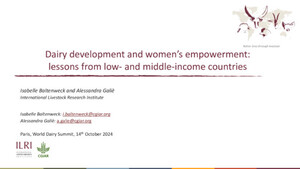
Investigation of the risk of exposure to antimicrobial residues present in marketed milk in Tanzania
Abstract
Concerns about food safety are increasing in developing countries where urbanization and changing life styles are associated with greater dependence on marketed foods. Ensuring the safety of animal products supplied from smallholder and pastoral systems in these countries presents a great challenge. The risk of consumer exposure to marketed milk containing antimicrobial residues was investigated by testing 986 samples of unpasteurized milk collected in dry and wet seasons from market agents along milk supply chains in and around Mwanza and Dar es Salaam in Tanzania during 1999 and 2000 and estimating the frequency of consuming such milk. With the Charm-AIM screening test kit, antimicrobial residues were detected in 36% of marketed milk samples, suggesting an average risk of about 11 exposures per month for a daily consumer of milk. The higher prevalence levels of the residues were not significantly different by site or season, as had been hypothesized. Recommendations to address this problem are (i) creation of awareness among policy makers, who are currently unaware of the milk safety problem, and development of potential interventions to address the problem, (ii) testing for the residues at milk collection centers, and (iii) further investigation of milk production practices used by the predominantly smallholder producers and market agents. Risks should be characterized and estimated to provide a basis for designing appropriate extension messages and effective management strategies for protecting the health of consumers without unnecessarily jeopardizing the livelihood benefits derived from dairying by producers and market agents.
Citation
Kurwijila, L.R., Omore, A., Staal, S. and Mdoe, N.S.Y. 2006. Investigation of the risk of exposure to antimicrobial residues present in marketed milk in Tanzania. Journal of Food Protection 69(10): 2487-2492.










